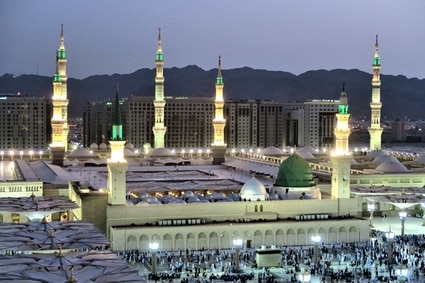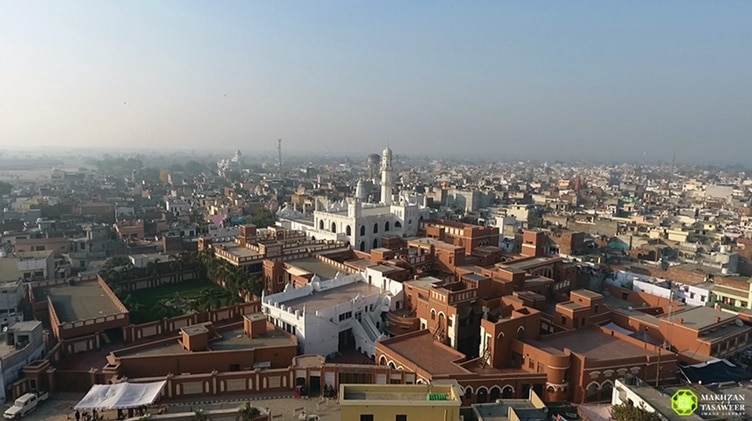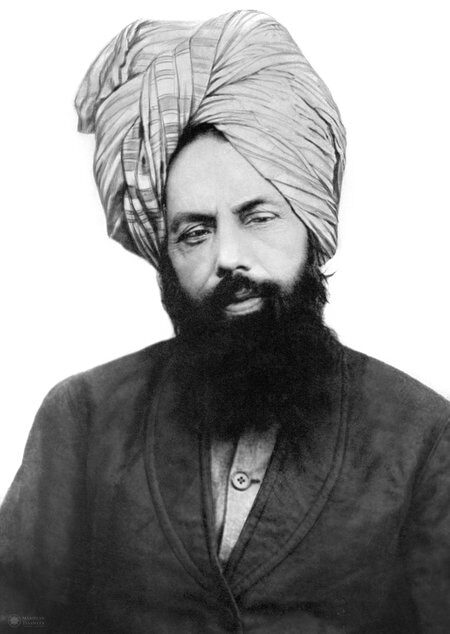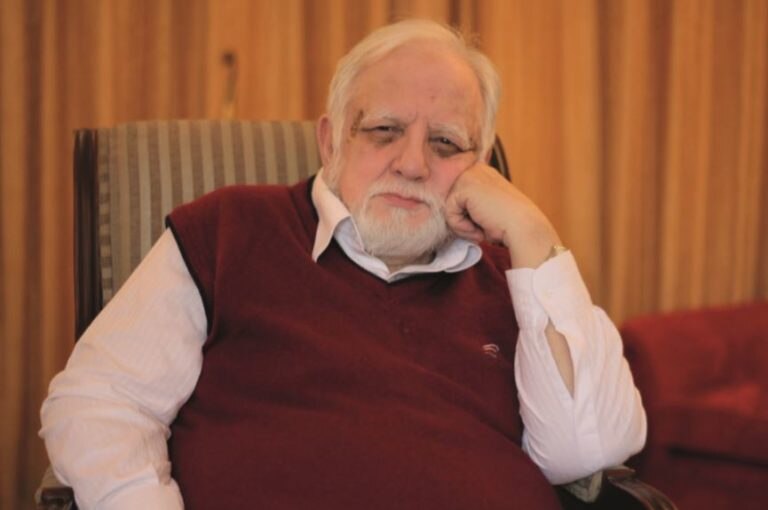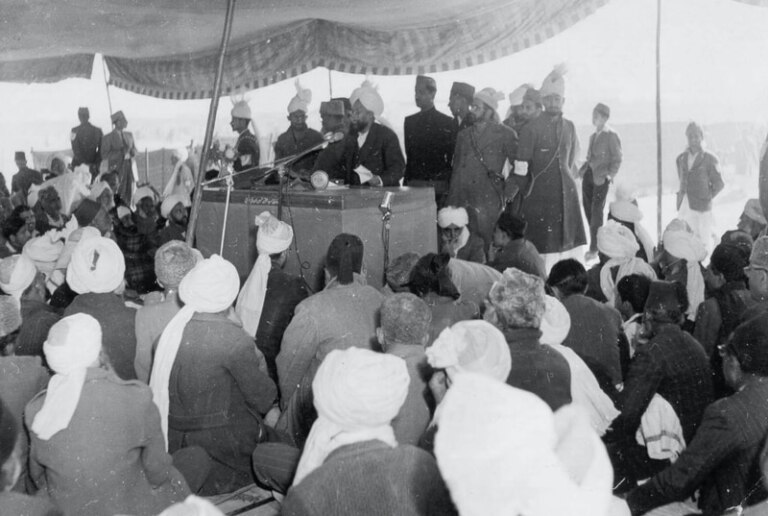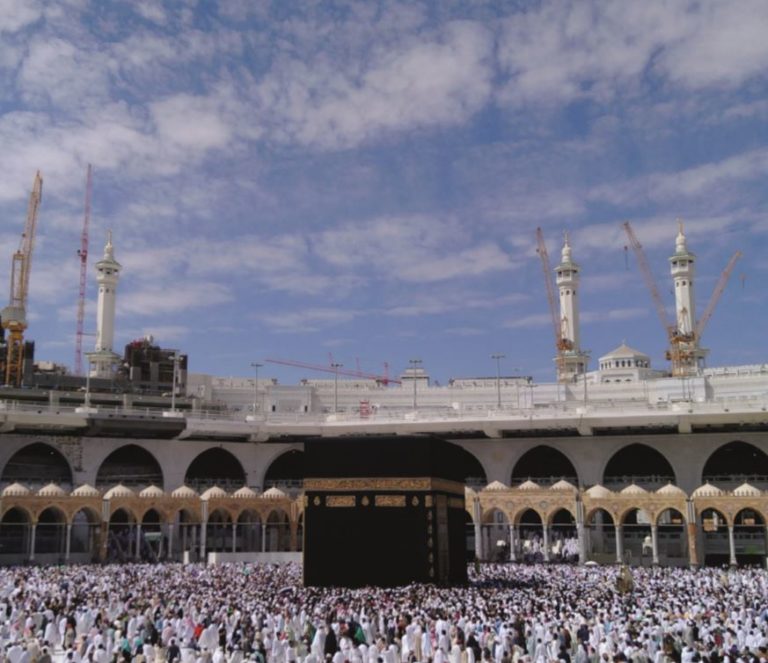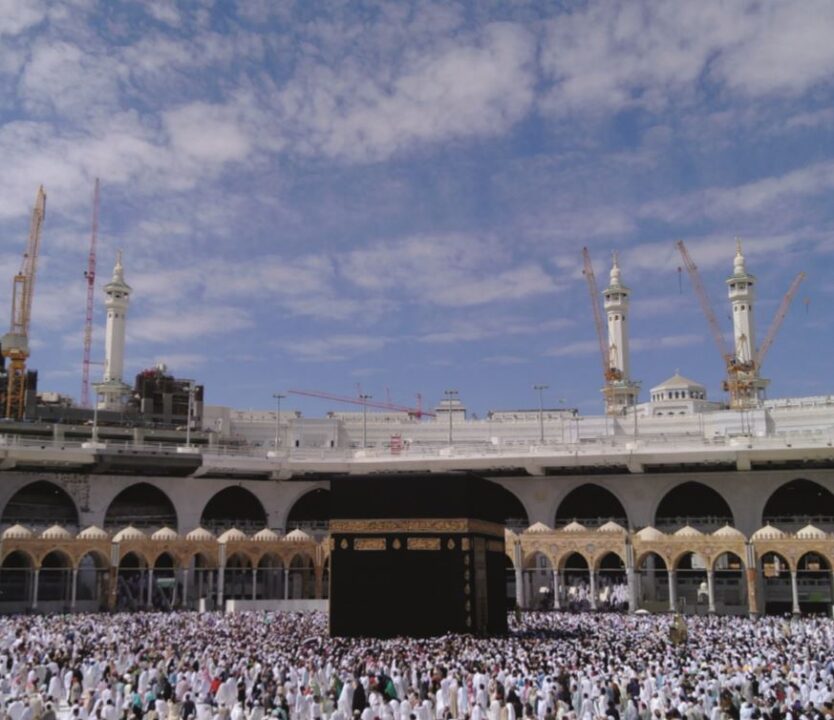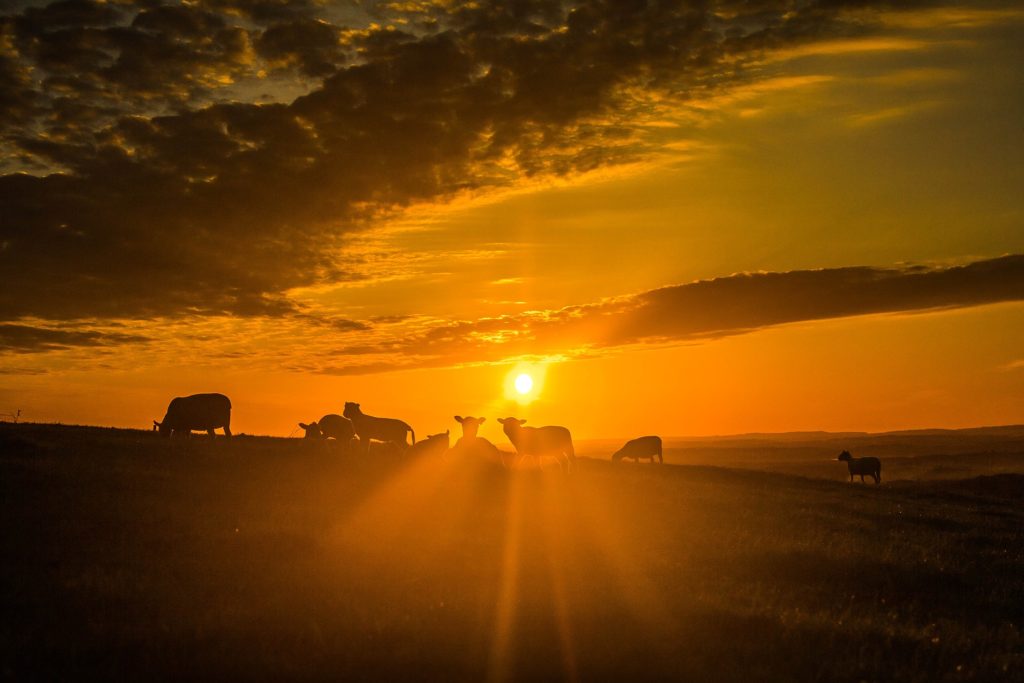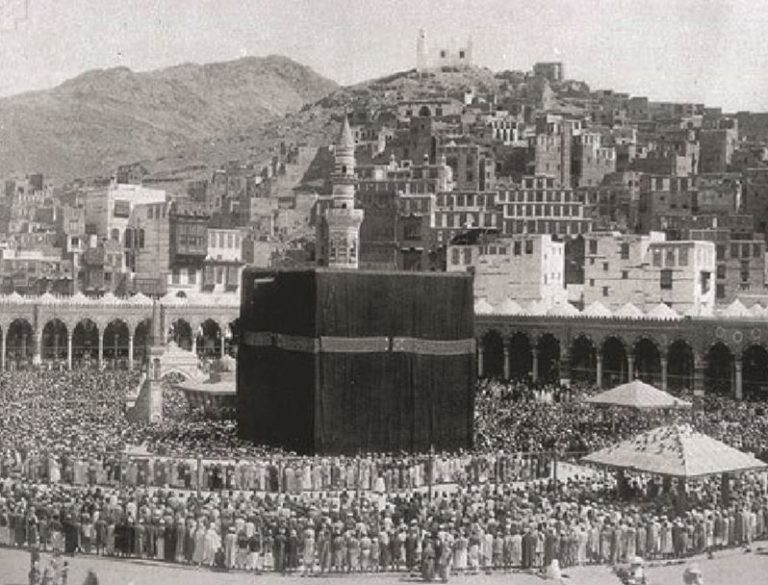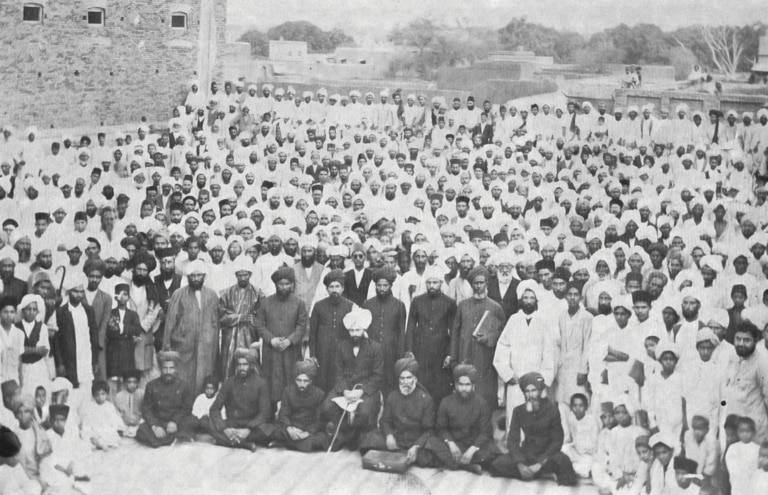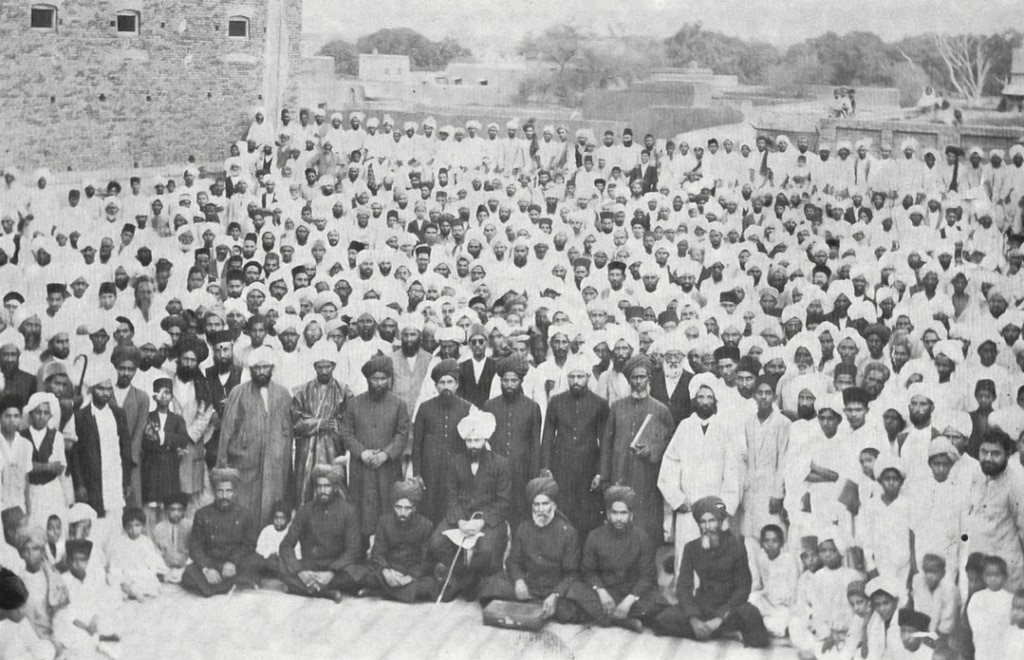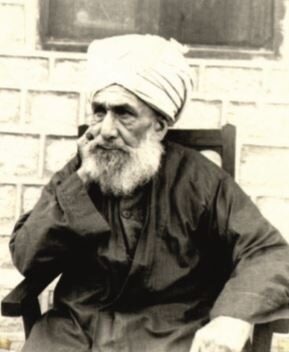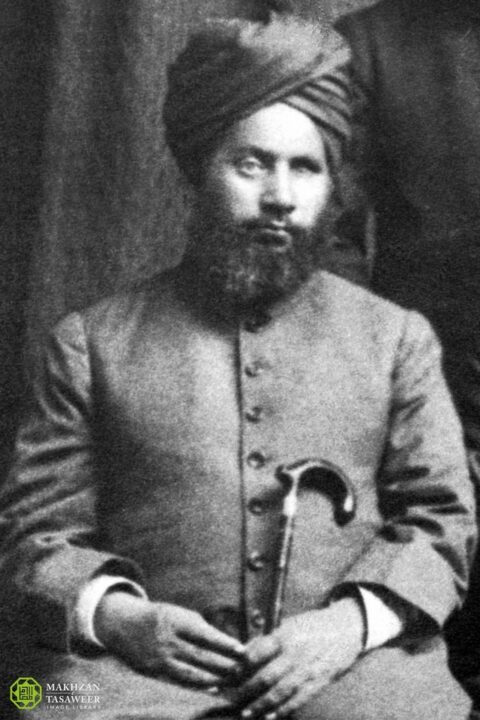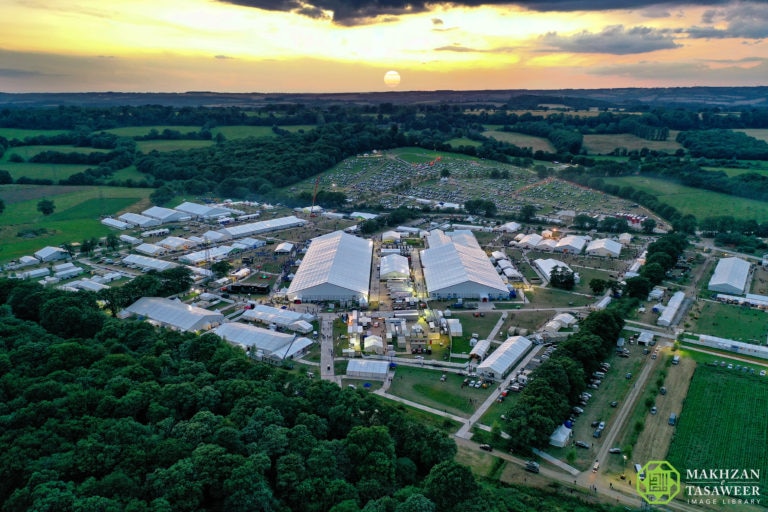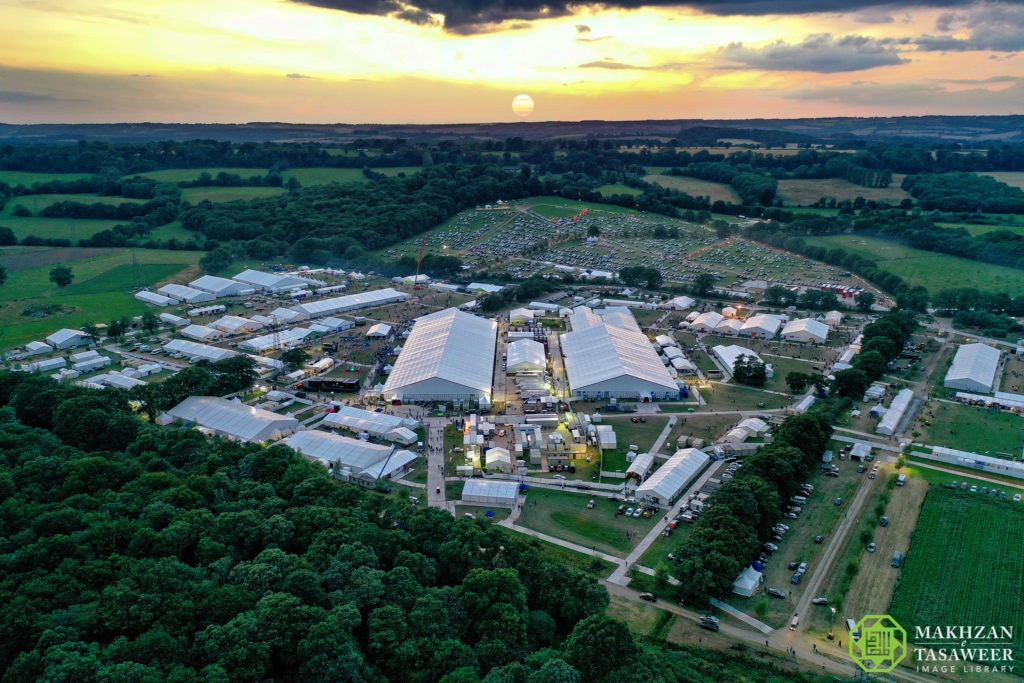Asif M Basit
On 30 July, I woke up to see my mobile phone buzzing with messages. A sad news awaited me on the screen of my phone. A noble friend of mine, Mujeeb-ur-Rahman Advocate had sadly passed away. My heart sank with utter grief. With this, my ten-year connection with him came to an end.
This journey of affection started with the initiation of the live broadcast of Rah-e-Huda in May 2009. In the early days, when this programme started, Hazrat Amirul Momineenaa would himself nominate and give guidance with regard to the guests on the panel. These were the initial days of Rah-e-Huda and hence, Huzooraa gave special attention to this show.
Huzooraa would, with utmost attention, listen to every question and then would provide his guidance accordingly with regard to the guests who should be invited to answer questions.
I would always envy these selected guests. How fortunate they were that their names were selected by their beloved Khalifa to defend Islam and its pious teachings.
For the first time, soon after, the events of 1974 were to be discussed in an upcoming programme. I was present in the blessed company of beloved Huzooraa and I had not yet completed seeking guidance on this matter when Huzooraa said, “Take Mujeeb-ur-Rahman Sahib live on telephone.”
I instantly made a note of this for implementation. Then a stage came when doctrinal discussions with regard to 1974 were to be discussed. When I requested guidance of Huzooraa, he instructed, “Mujeeb Sahib is capable enough to answer religious questions.”
With this, Huzooraa also gave a name of a religious scholar to be taken as a guest in the programme. This was the first time I ever had the privilege to talk to the late Mujeeb Sahib. I had known him well, but I had never had the privilege of meeting him. I searched and dialed his phone number instantly.
He was a great scholar and hence I always felt a strong sense of his presence. When he picked up the phone and answered, all my apprehensions vanished. He spoke with such affection and involved me in such an interesting discussion and encouraged me so much that all nervousness went away and I felt comfortable to talk to him. When I told him that Hazrat Khalifatul Masihaa had himself graciously appointed him to be a guest in the programme, I felt his heart thumping with joy even on the phone call.
When I enquired about a certain time and a certain day for the programme and if he was able to participate in it, he instantly replied in astonishment, “I have been ordered by Huzooraa and now there remains no question about my choice. Wherever and whatever condition I may be in, I will most definitely participate!”
Here, I will also recount the rest of the discussion that occurred in this phone call as it would always be a part of our normal discussions whenever I contacted him later. He would ask: Who else is on the panel? What are the questions for the other participants? Can you send all the questions to me via email? How much time would you have for my answer? (This last question would provide me the most joy as there were very few who would empathise with me in such a manner.)
Hence, these questions were a part of every discussion we had. Then, he would further assist us by pointing out the starting and ending points of his answers. His detailed understanding of the programme and the questions allotted to him, patiently listening to the answers of other participants and granting due importance and attention to their answers, answering questions appropriately and to the point and keeping in view the focal point of the questioner were some of the key points of Mujeeb Sahib’s personality that made him popular and equally adored by all and hence, one of my favourite panellists on this show.
This is a sketch of how we planned our programmes. Alongside this, we also had to take live questions as well. Sometimes we would be completely unaware of the context in which those questions were asked. Being the host of the programme, I always had the ease with regard to all the difficult and tricky questions that were asked in that I would pass the baton to Mujeeb Sahib and then Mujeeb Sahib would calmly answer the question and after satisfying the questioner, would return to his position.
Whatever the tone of the questioner was, Mujeeb Sahib would always keep to his noble demeanour and polite response. He would, in the most appropriate and noble manner, grant answers to questioners in accordance with their disposition.
After almost a year, a request with regard to a certain programme was presented before Hazrat Amirul Momineenaa. Due to some constraints, no guest could be taken live via telephone. Huzooraa graciously permitted us to invite Mujeeb Sahib to London.
Hence, Mujeeb Sahib was our guest in the true sense. This was my first ever face to face meeting with Mujeeb Sahib. I had always learnt something from his discussions, but this time, I also learnt from his personality, his routines and his character.
Mujeeb Sahib was certainly amongst those people who can be termed as institutions in their day to day lives. Many would come and benefit from his diverse experience and knowledge. I take pride in the fact that I learnt a lot from Mujeeb Sahib. The effect of learning is enlarged if the person is also a good orator along with his knowledge and experience. Mujeeb Sahib perfected these three traits to the highest extent. I would also have the privilege to accompany Mujeeb Sahib from the guest house at Gressenhall Road to the MTA Studios at Baitul Futuh, Morden.
At other occasions, I would request my colleagues to do so. Whenever I went to pick him up, I found him ready on time. With regard to the answers of questions that had been prepared, I always knew that Mujeeb Sahib would efficiently prepare all his answers in detail, but now, when it came to record the programme in the studios, I saw that Mujeeb Sahib would also take care of his appearance, which would be immaculate. There was no extravagance, yet his appearance was dignified. Even his shoes were always neat and well polished.
When picking Mujeeb Sahib up from the Fazl Mosque, I would reach the guest house before time, in case I could be of any help to Mujeeb Sahib. At the agreed time, I always found Mujeeb Sahib ready for the programme.
He loved reading. Books were always lying on his bedside. He would study in depth. He would examine the writer’s point, understand it and then would make others understand it. Most of the time, he would assert that the writer had referred to a certain book with regard to a certain point and that it would be easier to understand it if that original book could be obtained.
Many a time, I would receive his call from Pakistan about a book recently published and would ask me to send him a copy from London due to its unavailability in Pakistan or to keep them with me and he would take them from me on his next visit.
A book by Ali Usman Qasmi detailing events post-1953 about the persecution of Ahmadis was published. I received a phone call from Mujeeb Sahib at around 9pm in London, which is 1am in Pakistan. He asked me if I had read the book. When I told him that I had, he discussed two or three parts of that book with me. He had found the book to be an interesting one. He also had some reservations with regard to certain parts of the book and said that, in his understanding, certain parts demanded further explaining. He expressed all three views with appropriate emotions and in a well composed manner.
The matter to be highlighted here is that he was always aware of the newly published books; he was always eager to get his hands on the printed copy, then comment on its contents and encourage others to read it. This was a wonderful hobby of Mujeeb Sahib.
Once, for an MTA programme, some famous guests such as Dr Ayesha Jalal, Prof Francis Robinson and Prof Ian Talbot were invited as guests. I sought Huzoor’saa guidance in this regard and he appointed Mujeeb Sahib as the host of this programme. I had planned to invite him as a guest in the programme as a professional jurist and had the name of a young lawyer in my mind to host this show.
However, I noted what Huzooraa had instructed and informed Mujeeb Sahib accordingly. Mujeeb Sahib had always participated in MTA programmes as an expert. He accepted the responsibility readily and wholeheartedly, but, once or twice, he mentioned his anxiety as a host as he had never had the experience. But more than that, he was also concerned if he would be able to fulfil the expectations of Hazrat Khalifatul Masihaa. Apart from this concern that was natural, Mujeeb Sahib invested such a great amount of time and effort for the programme that it is a perfect example for all hosts to follow. Dr Ayesha Jalal, Prof Robinson and Prof Talbot are historians and academics who are considered to be the most authentic specialists in the history of South Asia.
Mujeeb Sahib asked for the original writings of these academics beforehand and studied them all. He familiarised himself with each and every topic discussed in their books in detail.
In those days, when I would visit Mujeeb Sahib in the mornings, I would find him occupied in studying books, and when I would visit him in the evening, he would be further indulged. What is the temperament of the guest? What is their point of view with regard to the Jamaat? What questions should be put forward to them and in what manner should these be asked? During those days, all such questions were the focal point of Mujeeb Sahib’s attention and all day, he would remain busy in crafting and composing the questions to ask.
Then came the day when the programme was to be recorded. It was natural to be taken aback by the commanding presence of Mujeeb Sahib. His knowledge and his noble character were the key factors that made him so. Before the programme could start, Mujeeb Sahib had already befriended all the guests. The discussion that was recorded was scholarly. Not for a single instance did Mujeeb Sahib impose an impression of his scholarly superiority, rather he presented such questions that spoke of his in-depth knowledge of the subject.
A scholarly answer demands a scholarly question and hence, we were able to profit highly from the prolific presence of Mujeeb Sahib as a host and we produced some high quality programmes.
In another programme, a well-known jurist and lawyer, Abid Hassan Minto was invited to London. This programme was hosted by Amjad Mahmood Khan Sahib of USA. I once again witnessed Mujeeb Sahib immersed in books for the preparation of this programme. The laws of Pakistan was the subject-matter of the programme and this was Mujeeb Sahib’s favourite topic. Of course, Mujeeb Sahib was aware of this topic in detail as he was constantly following the cases of Ahmadis in Pakistan, yet whenever I got to see him in those days, I found him immersed in books acquiring knowledge. It was as if he was preparing for an exam.
This is indeed a perfect example for all guests of such programmes.
Here, I would like to mention another important matter. When I got acquainted with Mujeeb Sahib, he had become infirm and walked with great difficulty. He would use a wheelchair. I would escort him from the Fazl Mosque in London to Baitul Futuh and from there, I would take him to the MTA Studios with Mujeeb Sahib in his wheelchair and there he would take his seat. But whenever external guests were invited, he would ask me to stop the wheelchair outside the studio and would walk into the studio himself. He would say that as they were our guests, he did not wish to go in front of them on a wheelchair.
Albeit with difficulty, Mujeeb Sahib would approach such guests on foot and then the recording would start.
Mujeeb Sahib was one who not only had extreme love for Khilafat but also had the capability to impart this love in the hearts of the Ahmadi youth. He would regularly write letters to Hazrat Khalifatul Masihaa. He would read what he had written many times before he sent it to ensure that he had not written anything incorrect. Sometimes he would also give me his letter to see if what he had written was appropriate.
He would write letters with extreme love and then would wait for the answers with extreme concern. When he received the reply, it would be a moment of extreme pleasure for him.
Once, whilst in London, he was recounting his life story to me at my request. He said, “My father wished for me to devote my life as a missionary.”
Having said this, he felt sad as he could not fulfil his father’s wish. Whilst telling me this, he became emotionally overwhelmed and started weeping. He repeated this desire on many occasions and always with a trembling voice.
His utmost desire was to offer the remaining days of his life for the service of Islam and was passionate to request Hazrat Khalifatul Masihaa for the acceptance of this very desire.
One day, he told me that he had sent the application. At that time, he was almost 80 years old. Later, he flew back to Pakistan and we never got the chance to discuss this matter further. I also forgot and never asked him about the request he had made to Huzooraa. However, after many weeks, he called me at night. I was stunned to receive a call at this unusual hour of the night. When I picked up the phone, the ecstasy was pouring out from Mujeeb Sahib’s every word, and he exclaimed, “I have got the reply!” I responded, “Reply for what?” He humbly replied: “Remember, I told you about a letter I wrote to Huzooraa requesting to accept my waqf for the propagation of Islam. Huzooraa has said that what I am doing right now is no less than waqf and Huzooraa has prayed for the acceptance of my services.”
The reply from Hazrat Khalifatul Masihaa strengthened his emotions. He was pleased for this accreditation. Perhaps the answer was a profound signal of joy and relief for his father Maulana Zill-ur-Rahman Sahib’s resting soul. The fact is that Mujeeb-ur-Rahman Sahib could not formally serve as a life devotee, however, his services were accepted by Hazrat Khalifatul Masihaa as a waqf-e-zindagi. And it is the reality that the opportunity to sacrifice time and effort availed by Mujeeb Sahib for the service of his faith is enviable.
He presented the Jamaat’s point of view in courts courageously by exhibiting nobility at its best. He presented the issues faced by the Ahmadiyya Muslim Community before international organisations. He presented the reports of persecutions upon minorities and Ahmadis in institutions like Harvard. All this and much, much more comprised the services provided by Mujeeb Sahib to the Jamaat.
Huzooraa would include him in various committees on legal matters and would value his opinion. What more could be referred to as great service? Here another thing is worth mentioning. Authority is highly sought after by many. Everyone seems to be after power and wishes for authority.
After witnessing the services provided by Mujeeb Sahib, I would often elaborate authority in two separate meanings. One in its literal meaning and the other is in the meaning of credential. It would then come to my mind that why not strive for the authority that holds the status of credential and that we should strive to excel in some particular field and attain the highest status and hence become the Sultan-e-Naseer (best of helpers) of Khilafat.
May Allah fulfil this vacuum which, in its entirety, is a big vaccum and may He grant our beloved Huzooraa helpers in all fields to assist him with the best of their capabilities.
The last time I heard from Mujeeb Sahib was on 11 July 2019. I received an email in which he wrote that he had had a heart attack and was admitted at Tahir Heart Institute, Rabwah. He was sick and bedridden and was remembering his close ones; it was then that he remembered me.
He said that he had come to know that I had written a book on Khilafat-e-Ahmadiyya. “If you can send it to me then it will likely give me a new desire to live. Can you please send it to me?” asked Mujeeb Sahib.
I replied that I would most certainly send it. The days of Jalsa were near. I had planned to send the book through one of the guests travelling back to Pakistan from Jalsa Salana UK. I got occupied in Jalsa. I had bought the book and kept it and wished to hand it over to someone to take it for Mujeeb Sahib. During the busy routine of Jalsa, it is a routine to check text messages or emails received overnight that might need urgent attention.
On 30 July, I woke up to read the sad news of the demise of Mujeeb Sahib.
اِنَّا لِلّٰہِ وَاِنَّا اِلَیۡہِ رَاجِعُوۡنَ
Where should I send the book now? And how should I convey my feelings to him? I shall just write it here:
“Very Respected Mujeeb-ur-Rahman Sahib. After salutations, I would like to say that what hope of life could my writing give to you? But your words with regard to my book have indeed blown a new spirit in me. You had many a time blown a new spirit in me. After my parents, the people I am indebted to for inculcating the love of Khilafat in my heart, you are most certainly among them.
“There are many other favours for which I am in your debt and can never forget you.
“As far as sending you the book is concerned, I cannot send you the book now, even if I strive with all my effort.
“I will live on with this desire, but will not be able to send you my book because no post reaches the place where you have gone. I wish I could.
“I asked so many favours of you and you fulfilled them all.
“You asked a single favour, but I was not able to fulfil it. I delayed it to the point of regret.
“With a request to forgive me I take leave of you. Wassalam. Sincerely yours.”
(Translated by Haseeb Ahmad, Pakistan)


